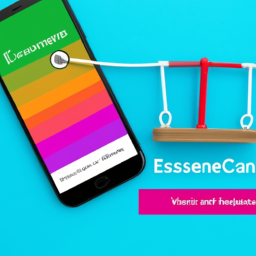Mobile Apps vs. Mobile Websites: What’s Best for Your Business
A Digital Dilemma
In today’s digital age, having a strong online presence is crucial for businesses of all sizes. With the majority of people accessing the internet through their smartphones, it’s important to optimize your business for mobile devices. But with so many options available, how do you know whether to invest in a mobile app or a mobile website? Don’t worry, we’ve got you covered! In this article, we’ll explore the pros and cons of each to help you make an informed decision.
Mobile Websites: The Versatile Option
A mobile website is similar to a regular website, but it’s specially designed to be viewed on smartphones and tablets. It’s accessible through a web browser, just like any other website, and doesn’t require users to download or install anything. Here are some benefits of having a mobile website for your business:
1. Cost-Effective and Easier to Maintain
Compared to mobile apps, developing a mobile website is generally more cost-effective, as you don’t need to create separate versions for different operating systems. Additionally, maintaining and updating a mobile website is relatively simple since changes can be made in real-time without requiring users to update their apps.
2. Broader Reach and Better SEO
A mobile website is accessible to anyone with an internet connection and a browser, regardless of their device type or operating system. This means that you can reach a wider audience without having to worry about compatibility issues. Moreover, search engines like Google can easily crawl and index mobile websites, improving your chances of being found by potential customers.
3. Enhanced User Experience
Mobile websites are designed to provide a user-friendly experience on smaller screens. By optimizing your website for mobile devices, you can ensure that customers can navigate easily, find the information they need, and engage with your content seamlessly.
Mobile Apps: The Interactive Powerhouse
A mobile app is a standalone software application designed specifically for mobile devices. It’s usually downloaded and installed directly from an app store onto users’ smartphones or tablets. Here are the advantages of having a mobile app for your business:
1. Enhanced Functionality and Personalization
Mobile apps have the advantage of utilizing the device’s native features, such as GPS, camera, and push notifications, to provide a more interactive and personalized experience for users. This can significantly enhance customer engagement and loyalty.
2. Offline Functionality
Unlike mobile websites, mobile apps can offer limited functionality even when offline. This means that users can access certain features or content without an internet connection. This can be particularly useful for businesses that provide services or features that need to be accessible at all times.
3. Branding and Customer Retention
Mobile apps allow you to create a unique and immersive brand experience for your customers. By customizing the design, layout, and functionality of your app, you can reinforce your brand identity and build a loyal customer base. Additionally, having your app installed on customers’ devices serves as a constant reminder of your business and increases the likelihood of repeat engagement.
Choosing the Right Path
Now that we’ve explored the benefits of both mobile apps and mobile websites, how do you choose the right one for your business? Here are some factors to consider:
1. Budget and Resources
If cost and maintenance simplicity are your main concerns, a mobile website may be the better option. However, if you have the resources to develop and maintain a fully-featured app, it can provide a more immersive and interactive experience.
2. Functionality and Engagement
Consider the specific features and functionalities you want to offer to your customers. If you require access to device features or offline functionality, a mobile app could be the right choice. On the other hand, if you aim to reach a broader audience with general information and content, a mobile website may suffice.
3. Goals and Marketing Strategy
What are your main business goals and how do you plan to market your products or services? If you’re focused on customer retention, brand building, or providing a unique immersive experience, a mobile app can help you achieve those goals. If your primary focus is on reaching a wider audience and improving your online visibility, a mobile website will be more effective.
The Bottom Line
Ultimately, the choice between a mobile app and a mobile website depends on the specific needs and goals of your business. Many businesses find that a combination of both is optimal, as they serve different purposes. Regardless of which path you choose, remember to prioritize a user-friendly and seamless mobile experience to keep your customers engaged and satisfied.
So, whether you decide to take the mobile app route, the mobile website route, or even both, ensure that your decision aligns with your business goals and budget. Embrace the mobile revolution and give your customers the convenience and accessibility they crave!











